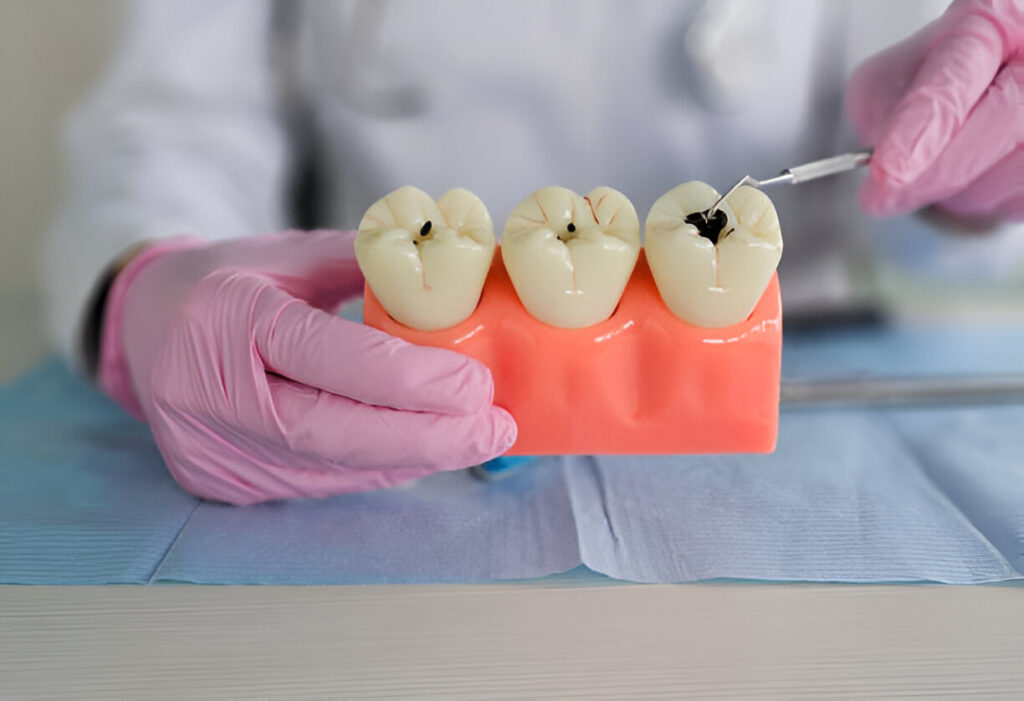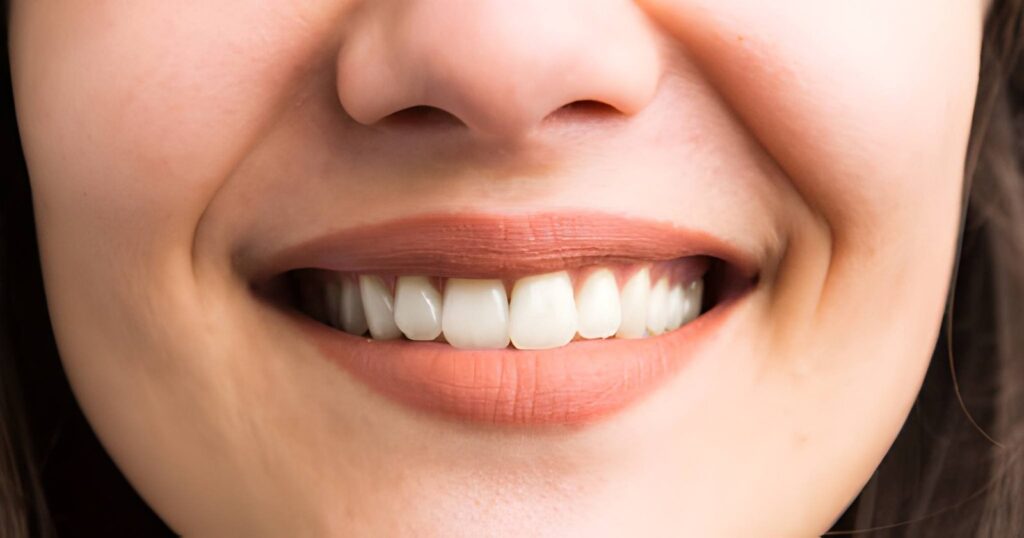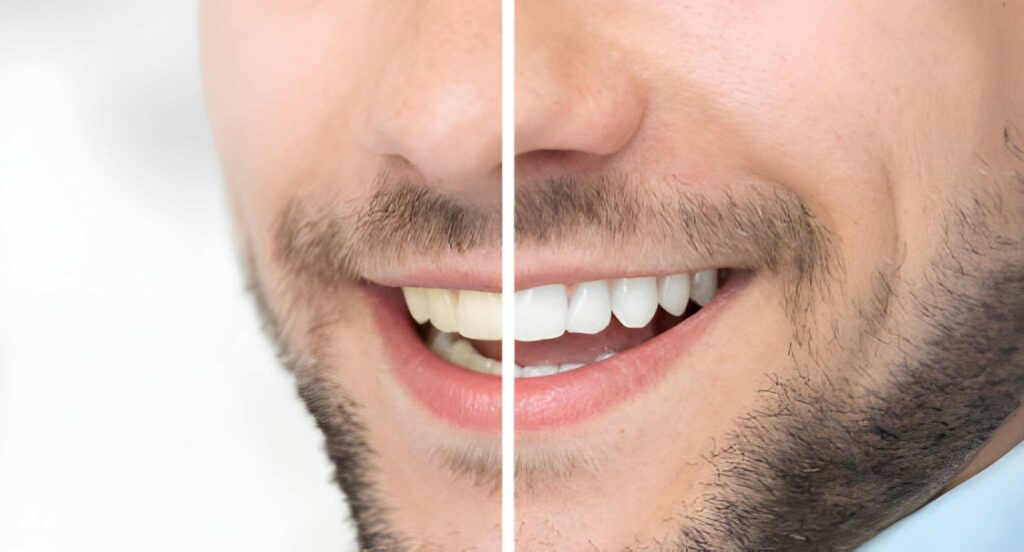Dental fillings are one of the most common treatments used to fix cavities and minor tooth damage. A cavity is a small hole in the tooth caused by decay. If left untreated, it can get worse and lead to pain, infection, or tooth loss. Fillings stop this by sealing the hole and protecting the tooth. They help restore the tooth’s normal shape and function, so you can bite and chew properly. In this article, we’ll explain what dental fillings are, how the procedure works, and what to expect before, during, and after treatment.
When Do You Need a Filling?
If you’re experiencing tooth pain, sensitivity, or notice a dark spot or hole, it could mean you need a filling. Sometimes, food getting stuck in the same place or discomfort when chewing are early warning signs. During routine check-ups, dentists use mirrors, tools, or X-rays to detect decay. For minor to moderate damage, treatments like composite bonding in Aberdeen offer a simple and effective solution to restore your tooth’s shape and function. Acting early is key—treating cavities promptly helps preserve your natural tooth and prevents more serious issues that may require crowns or advanced dental work.
Lost Tooth? Find Help at an Emergency Dentist in Aberdeen
Step-by-Step: The Filling Procedure
Getting a filling is a simple process. First, the dentist checks your tooth and confirms where the decay is. You’ll be given a local anaesthetic to numb the area so you don’t feel pain. Once the tooth is numb, the dentist removes the decay using a drill or laser. The hole is then cleaned to remove bacteria and prepare it for the filling. The filling material is placed into the hole and shaped to match your tooth. A special light is used to harden it. Finally, the dentist smooths and polishes the tooth for a natural finish.
Different Types of Filling Materials
There are several types of materials used for fillings. Composite resin is tooth-coloured and blends well with natural teeth. It’s often used for front teeth or visible areas. Amalgam is silver-coloured and very strong. It’s commonly used for back teeth. Glass ionomer is also tooth-coloured and releases fluoride, which helps protect against future decay. Gold and porcelain fillings are made in a lab and are more expensive, but they can last a very long time. The best choice depends on where the cavity is, how visible the tooth is, your budget, and personal preference.
Dealing with Tooth Pain? Emergency Dentist Aberdeen Can Help
Does It Hurt to Get a Filling?
Many people worry about pain during a filling, but the procedure is usually painless. The dentist will make sure your mouth is numb before starting. You may feel some pressure or vibration, but it shouldn’t hurt. After the numbness wears off, you might feel slight sensitivity for a few days. This is normal and should improve quickly. Over-the-counter pain relief can help if needed. If you feel sharp pain when chewing or if the filling feels too high, let your dentist know. They can adjust it to make sure it fits your bite comfortably.
Will an Emergency Dentist Extract a Tooth?
Looking After Your Filling
Once your filling is done, you can usually return to normal activities straight away. However, it’s best to wait until the numbness wears off before eating. This helps you avoid biting your cheek or tongue. For the first day or two, try to avoid very hot or cold food and drinks. Brush your teeth gently with a soft toothbrush and floss daily. Avoid sticky or hard foods that could damage the filling. Regular dental check-ups help make sure your fillings stay in good shape and allow the dentist to spot any issues early.
Will Emergency Dentists Take a Tooth Out?
How Long Does a Filling Last?
The lifespan of a filling depends on the material used, how well you care for your teeth, and your eating habits. On average, fillings last between 7 and 15 years. Composite fillings may wear down faster than amalgam or gold. Fillings on biting surfaces or on the edges of teeth can also wear down sooner. If you grind your teeth or chew on hard objects like ice or pens, your filling may not last as long. If a filling becomes loose, cracked, or falls out, it’s important to see your dentist as soon as possible.
Do You Have to Pay for Emergency Dentist in the UK?
Why Fillings Matter
Fillings are an important part of keeping your teeth healthy. They help stop decay, protect your tooth structure, and prevent more serious dental issues. Getting a filling early means less pain, lower costs, and a quicker recovery. The procedure is simple, safe, and effective. If you notice any signs of a cavity—like pain, sensitivity, or visible damage—don’t wait. Book a check-up and get it sorted. With regular care and good oral hygiene, your fillings can last for many years and help you maintain a strong, healthy smile.
Frequently Asked Question
How long does a dental filling procedure take?
A dental filling usually takes about 30 to 60 minutes, depending on the size and location of the cavity. Most fillings are completed in a single visit, making the process quick and convenient for patients needing minor tooth repairs.
Can I eat straight after a filling?
Yes, you can eat after a filling, especially if a tooth-coloured composite was used. However, it’s best to wait until the numbness wears off to avoid biting your cheek or tongue. Stick to soft foods for the first few hours just to be safe.
Do fillings stop tooth pain immediately?
Yes, in many cases, a filling can stop tooth pain caused by decay. However, you might feel mild sensitivity for a few days. If pain continues or worsens after a week, contact your dentist to make sure there are no further issues with the filling or the tooth.
Can dental fillings fall out?
Yes, fillings can fall out due to wear and tear, tooth grinding, or biting hard foods. If a filling becomes loose or falls out, contact your dentist quickly to prevent further damage or infection in the exposed tooth area.
Are fillings covered by the NHS?
Yes, fillings are usually covered under NHS dental treatment if they are clinically necessary. The cost depends on the treatment band. Cosmetic fillings for appearance only may not be covered, so it’s best to check with your dentist for specific NHS eligibility and costs.




